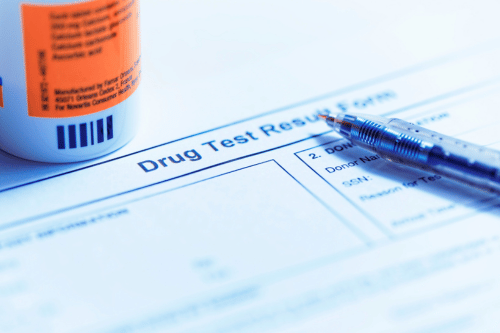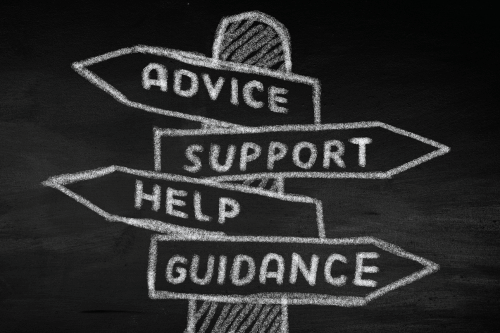

Medically supervised drug detox is often the first step for people struggling with substance abuse, substance dependence, or prescription drug addiction. This process provides the patient with a safe and structured way to manage drug withdrawal symptoms through professional care. At Sullivan Recovery in Mission Viejo, our medical detox facility offers proven detoxification programs supported by licensed staff and medical oversight.
Medically supervised drug detox refers to the clinical process of managing drug withdrawal symptoms under the care of licensed physicians, nursing staff, and behavioral health providers. Patients undergo a complete evaluation, including medical history, substance use patterns, and co-occurring mental health disorders like anxiety, insomnia, or psychosis.
These programs reduce the risk of serious complications such as seizure, delirium tremens, tachycardia, or even death, especially in cases of alcohol detoxification, benzodiazepine, or opioid withdrawal. The use of FDA-approved medications like naloxone, clonazepam, or diazepam allows medical teams to safely taper substances while addressing symptoms of physical dependence, depression, and stress.
This form of medical detoxification supports drug and alcohol detoxification in a secure detox center, with 24/7 monitoring of vital signs, blood pressure, heart rate, and hydration levels to prevent dehydration and preserve overall health. Sullivan Recovery ensures that every patient in our detox program receives high-quality health care while laying the foundation for long-term abstinence and sobriety.

Withdrawal symptoms can be both physical and psychological and may vary based on the substance used and the level of substance dependence. Patients often experience fever, diarrhea, perspiration, irritability, anxiety, insomnia, and headache as their bodies begin to adjust without the substance. Stimulant withdrawal, such as from methamphetamine, may also trigger mood swings, depression, or fatigue.
More severe cases—especially involving opioid, benzodiazepine, or alcohol detoxification—can present life-threatening symptoms including delirium, psychosis, spikes in blood pressure, rapid heart rate, or full-body tremors. Immediate care from a medical detox facility is critical in such situations, as failure to monitor vital signs, stabilize blood volume, or manage hallucinations could result in death.
Sullivan Recovery uses medicine, IV fluids, agonist therapies, and psychiatric oversight to address these symptoms early. Medications like buprenorphine, naloxone, alprazolam, and methadone play a vital role in stabilizing the brain and helping patients avoid early relapse. Our goal is to reduce harm and prepare each individual for the next phase of care at one of our affiliated treatment centers.
Opioid detox involves the use of clinically supervised medications such as buprenorphine, methadone, and naltrexone, all of which work directly on the opioid receptor to reduce cravings and withdrawal symptoms. These medications help prevent dangerous spikes in blood pressure, reduce gastrointestinal symptoms like diarrhea, and ease sleep disruptions caused by opioid withdrawal.
Common opioids treated in detoxification programs include fentanyl, oxycodone, morphine, and hydrocodone—all of which can lead to intense physical dependence and increased risk of overdose. Some patients may also be dependent on prescription drug opioids or develop secondary mental health conditions like anxiety or mood disorders, requiring a dual diagnosis approach.
Opioid use disorder is recognized as a chronic disease by the Food and Drug Administration and is treated using a combination of pharmacotherapy, behavioral therapy, and long-term support. At Sullivan Recovery, we integrate dialectical behavior therapy, psychiatry, and relapse prevention strategies to help patients move from detox to structured rehab programs, where the goal is lasting sobriety and reduced dependency on medication.
Benzodiazepine withdrawal can lead to serious outcomes like seizure, irritability, and delirium. Medications like diazepam, lorazepam, and clonazepam are commonly used for tapering.
These sedative drugs affect the brain, and stopping them suddenly without help is dangerous. A structured detox ensures physical stability and reduces the chance of relapse.

Alcohol detoxification must be managed in a medical detox setting due to the risk of delirium tremens. Signs include confusion, tremors, and abnormal vital signs.
Patients may require sedatives, IV fluids, and monitoring of heart rate, blood pressure, and body temperature to prevent complications and support abstinence.
Medical detoxification includes constant checks of vital signs like blood pressure, heart rate, and body temperature. This ensures rapid response to tachycardia, dehydration, or sudden mood changes.
Nurses track hydration, sweating, sleep patterns, and any changes in physical health to support full stabilization before discharge.
Medications reduce the intensity of drug withdrawal and prevent medical emergencies. Common detox medication includes:
In some cases, injection or IV administration is necessary based on the patient‘s needs and medical history.

Many patients face both addiction and co-occurring mental health disorders such as anxiety, depression, insomnia, or psychosis. These conditions often develop alongside substance abuse, including the misuse of opioids, benzodiazepines, stimulants, and depressants, and complicate the process of recovery. This combination is referred to as a dual diagnosis, requiring integrated treatment that addresses both the disease of addiction and the underlying psychiatric symptoms.
At Sullivan Recovery, our treatment center provides access to licensed psychiatry services, evidence-based therapy, and structured programming. Patients may benefit from dialectical behavior therapy, medication management with antidepressants or sedatives, and daily support for emotional mood regulation. These therapeutic tools promote long-term sobriety, help patients manage stress, and build stronger coping mechanisms that lower the risk of relapse.
Many insurance providers—including Humana, Medicare, and private health insurance carriers—offer coverage for medical detox, detoxification programs, and extended care. This may include inpatient or outpatient services, medication, evaluation, and follow-up mental health treatment for substance dependence and related health concerns.
At Sullivan Recovery, our admissions team helps each patient verify their insurance benefits to determine eligibility and coverage for detox centers, rehab, and other clinical services. This process ensures patients receive necessary health care without unnecessary delays or out-of-pocket financial strain. Affordable, verified access to care increases the likelihood of successful abstinence, long-term participation in recovery village programs, and engagement with evidence-based addiction treatment.
A full evaluation is conducted before beginning any detox program, ensuring that each patient receives a personalized and safe treatment plan. This assessment includes reviewing the patient’s medical history, current medications, past withdrawal experiences, and the type of substance involved—such as opiate, depressant, or stimulant use.
Important data points include the current dose, method of intake (e.g., pill, injection), and previous complications like seizure, delirium tremens, or abnormal vital signs such as high blood pressure or heart rate. These insights guide clinicians in choosing the proper medicine (like buprenorphine, naloxone, or clonazepam) and adjusting protocols to reduce the risk of adverse events. Sullivan Recovery uses this process to optimize safety, improve outcomes, and support a smoother transition into long-term treatment.
Misuse of medications like alprazolam, oxycodone, morphine, and hydrocodone can cause serious physical dependence. These cases require slow tapering and medication management.
Sullivan Recovery provides support for prescription drug addiction with tailored detox plans to help stabilize the brain and reduce cravings.
Patients in detox may experience symptoms such as:
All of these require a trained team to manage safely with proper medicine and emotional support.

Attempting to detox without clinical help increases the risk of seizure, medical complications, and relapse. Unsupervised withdrawal can be deadly.
A medical detox facility offers constant supervision, safe medication, and access to emergency services. FDA-approved protocols are followed to ensure safety.
Detox is only the first step. True sobriety requires long-term care at a treatment center, rehab, or recovery village.
Sullivan Recovery connects patients to inpatient or outpatient programs for therapy, relapse prevention, and emotional support.
Detox services are available nationwide. Cities like Miami, Denver, and Mission Viejo host quality detox centers with certified staff.
Sullivan Recovery offers trusted care in Orange County, helping patients with substance abuse, addiction, and co-occurring mental health disorders.
Every patient requires motivation, structure, and support during detox. Our team uses positive reinforcement, peer engagement, and psychiatric care to help patients stay focused.
Helping people through withdrawal builds momentum for lasting recovery and personal growth.
Medical detoxification protects your health, lowers the risk of death, and starts your path to recovery. Patients regain control over their body, brain, and future.
Sullivan Recovery believes detox is more than stabilization—it’s the foundation for lifelong change and better mental and physical health.
Medically supervised drug detox offers a secure, science-backed approach for managing withdrawal from substances like opioids, benzodiazepines, alcohol, and stimulants. With the help of a licensed physician, nursing staff, and mental health experts, patients can safely transition into full recovery.
If you or someone you love is battling addiction, substance abuse, or mental health issues, Sullivan Recovery is here to help. Contact us today to learn how our medical detox and detoxification programs can support your journey.
At Sullivan Recovery, as an in-network provider we work with most insurance plans, such as:
And More
If you or a loved one are struggling with mental health challenges or substance abuse, reach out to Sullivan Recovery today. Our team of compassionate professionals is here to support your journey towards lasting well-being. Give us a call at 949-836-7180.
The length of detox depends on the drug involved, the severity of dependence, and the patient’s medical history. Most medically supervised detox programs last between 3 to 10 days, though some cases may require longer monitoring, especially for benzodiazepine or alcohol withdrawal. The detox phase is only the beginning of treatment and should be followed by therapy and rehabilitation.
Policies vary by facility, but most medical detox centers allow essential personal items like clothing, toiletries, and approved medications. Family visits are often permitted during designated hours, especially in inpatient settings. At Sullivan Recovery, we encourage family involvement when appropriate, as it can improve emotional support and treatment outcomes.
Not all drugs require a medically supervised detox, but substances like alcohol, opioids, and benzodiazepines pose high medical risk during withdrawal. These substances can cause severe symptoms like seizures, delirium tremens, or cardiovascular issues. Even with less physically dangerous drugs, professional detox is recommended to manage mental health symptoms like anxiety, insomnia, or psychosis.
After detox, patients are typically referred to rehab, outpatient programs, or dual diagnosis treatment for ongoing support. This next phase may include therapy, medication management, group counseling, and relapse prevention planning. Detox alone is not a cure for addiction, but it is a vital first step in achieving long-term sobriety.